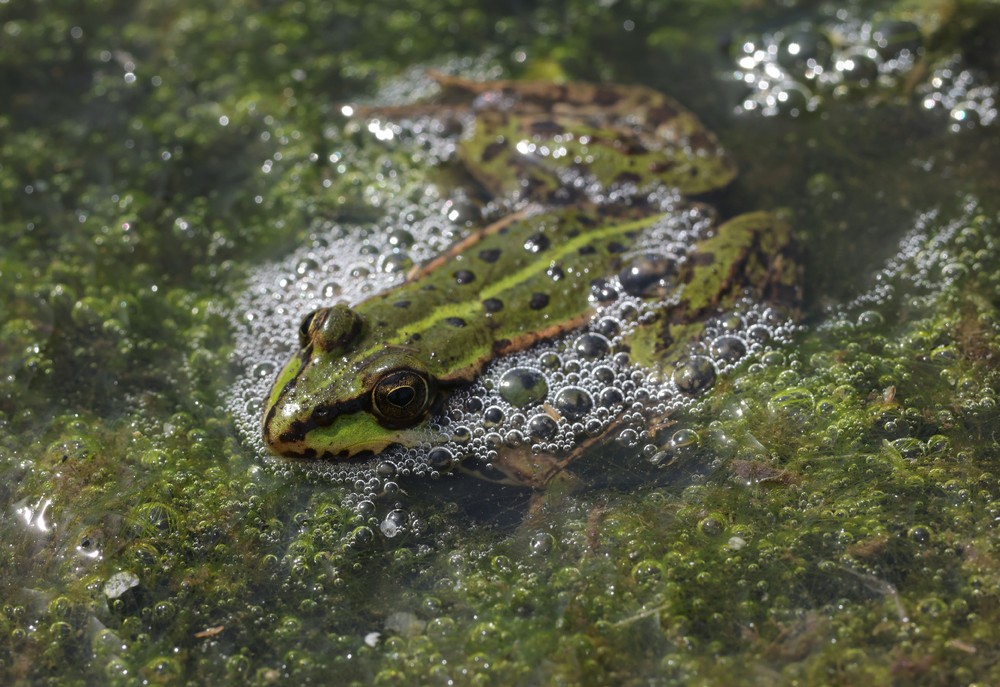|
A water frog (Pelophylax esculentus) lies in the marsh of an approximately 300 hectares rewetted portion of the Sernitzmoor peatland on May 31, 2023 near Greiffenberg, Germany. The Succow Stiftung, a German foundation devoted to international peatland restoration, has been rewetting the Sernitzmoor in an ongoing effort since 2014 as part of a project called “toMOORow”, which seeks to both reap the climate change benefits from peatland rewetting as well as provide commercial opportunity to local farmers and businesses. Peatland marshes are a highly efficient carbon sink, though large tracts across Europe have been drained over the centuries to make way for animal grazing and crops. Once dry and exposed to oxygen, peat become a powerful emitter of greenhouse gases. In Germany 7% of agricultural land is based on peatland, yet it accounts for 37% of Germany's agricultural greenhouse gas emissions. Rewetting stops the emissions and creates potential for paludiculture, marsh-based agriculture that includes water buffalo for their meat, cattail for insulation and reed pellets for paper. (Photo by Sean Gallup/Getty Images)
|

